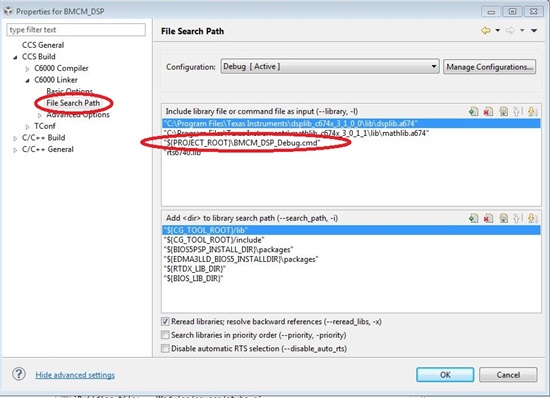Hello,
I am working on a C6747 project running DSP Bios.
I'm trying to find the address and size of the .bss and .far sections from within my application. I've been looking all over the documentation, but haven't succeeded in finding the right function or macro yet. Is there any such that I could use? If there isn't, what technique do you suggest for solving the problem?
Best regards
Johan


